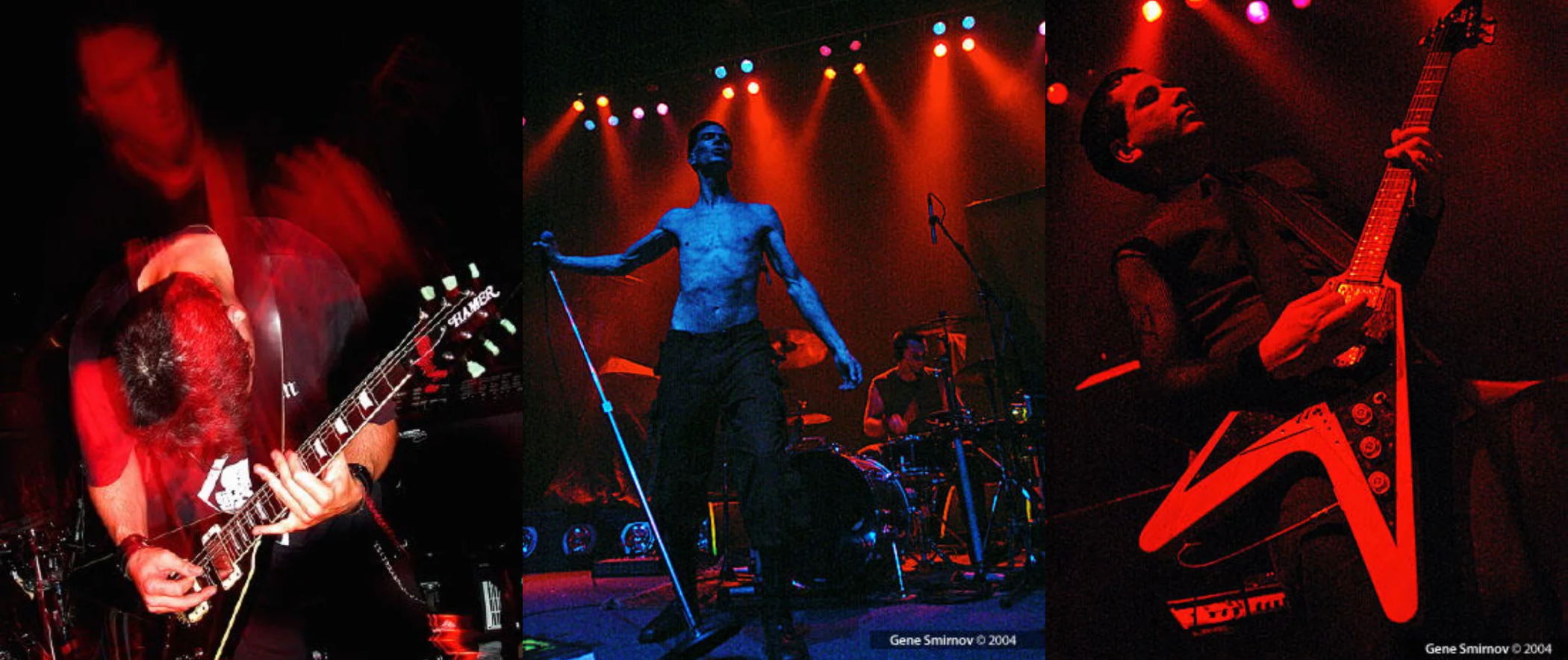How do you solve a problem like industrial metal?
Following on from my recent post about Red Harvest and a much less recent one about Panic DHH I have found myself listening to a select few bangers from this deeply unhip but hugely popular subgenre and wondering why 90% of it is garbage - an assertion I feel qualified to make after almost 20 years of extensive listening and Discogs-diving.
Perhaps a better question would be "why is 10% of it actually pretty good?", when the very concept of "industrial metal" is a contradiction in terms. Industrial music and metal music were never meant to be combined: the latter is an often technically demanding form of rock n roll and the former began as a wholesale rejection of everything rock n roll stood for. In 1975 nobody in Throbbing Gristle was thinking about how they could make the band sound more like Zeppelin or Sabbath.
If we're measuring popularity by the commercial success of Ministry and Rammstein, then industrial metal remains the most popular industrial offshoot by far. It's simultaneously the acceptable public face of industrial music and its clumsiest, uncoolest, least representative variant. But that's why I find it makes far more sense to think of it as a rock subgenre than an industrial one.
There is a certain sweet spot - an uncanny valley if you like - between the recognisable sound of somebody strumming an electric guitar and the completely alien sounds produced by samplers and synthesisers. One of the greatest examples of this is Chemlab's Exile On Mainline (which was on some Mortal Kombat soundtrack or other). When I first heard that riff as a callow youth of 16 I was instantly hooked, having never heard anything that was simultaneously so cruelly clipped and precisely processed and yet so serrated and filthy. Like their contemporaries in 90s grunge and noise rock, Chemlab created guitar sounds that would make Leo Fender turn in his grave. But the way they went about it was a whole other kettle of fish to the Seattle crew.
Even the most abrasive noise rock bands, who, through their unorthodox approach, often have a stronger claim to be following in the experimental traditions of industrial music than most industrial rock bands, usually have a distinctly organic guitar sound under all the grimy layers of feedback. Industrial metal on the other hand is at its best when the guitars are as sharp and sterile as a surgical blade: rather than using the studio to polish the guitars to a sickly commercial sheen (a trademark of some of the worst industrial rock), they've used it to turn the warm familiarity of the humble electric guitar into something completely cold, inorganic and repetitive.
One of the best albums to precision-tool this sound into something satisfyingly heavy yet immaculately produced is Amplified Fragments, the 2001 debut by Detroit's Firewerk.
Firewerk wasn't the band members' first rodeo. They had all been active since the 80s playing sounds ranging from thrash metal to gothic rock to straight up Test Dept style INDUSTRIAL industrial. Somewhere along the line three of them played together in Noc Barrage, whose sole full length release Anhedonia is both a nod to their metal past and a hint of Firewerks to come.
With John Cross's unique snarl, Alex Bongiorno's crunching riffs and Matthew Cross's powerful percussive punch (both performed and programmed) Firewerk were already a force to be reckoned with. But the real hero of Fragments is guitarist, producer, engineer and all-round studio whiz Tony Hamera. In addition to playing in various bands, Hamera's Discogs page boasts a decent list of production credits, and his skills are certainly evident in the clean, hard impact of every element of Firewerk's debut album.

Every song on Ampy Frags has an interesting and memorable moment in it, but I'd be exaggerating if I said every last one was a banger. Nonetheless, it's always been a solidly 4.5/5 album for me, and one I've been coming back to ever since Sadistic entered my world via Jon Murphy's Industrial Radio podcast (whatever happened to that, anyway?).
This is the real problem with industrial metal: the few bands that have got it right have set an impossibly high standard for the myriad Jourgensen cargo cultists who think it's enough to simply show up and plug in a distortion pedal.
It's a good job other kinds of music exist!